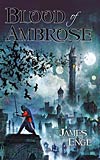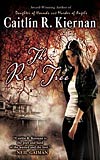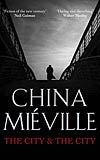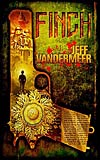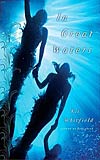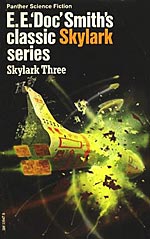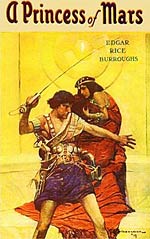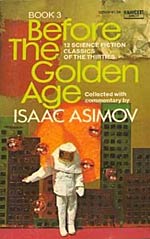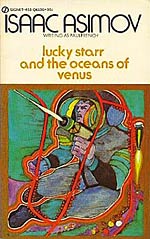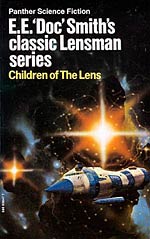Scott Pilgrim vs. The World
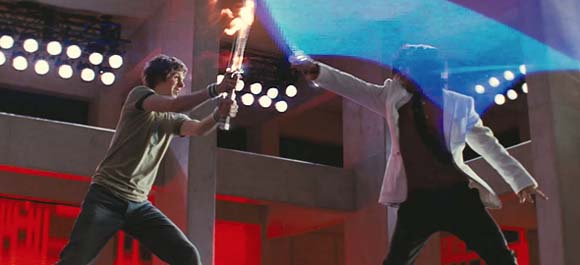
[This review was originally published on my blog The Photo Play.]
Imagine, if you will, a world in which video game fights are very real, and interrupt the normal flow of life much like songs in a musical, sweeping the world along into its bizarre unreality until it is completed, at which point life and the world return to normal. That is the bare minimum of what the viewer will need to prepare himself for as he walks into a showing of Scott Pilgrim vs. The World. Directed by British filmmaker Edgar Wright, Pilgrim is full of the manic energy of his earlier films Shaun of the Dead and Hot Fuzz, while adding layers of deftly-wrought magical realism which conjure comic-book aesthetics and video game narrative. It’s all so much muchness that upon leaving the theater one might be forgiven for wondering what just happened.
Ostensibly Pilgrim is a love story in which the protagonist has to deal with his new girlfriend’s previous lovers, but instead of a love-triangle, the story gives us a love-nonagon. Scott Pilgrim, our fearful hero, must battle the Seven Evil Exes of the lovely Ramona Flowers in order to win the right to court her. Each fight is a mix of comic book superhero tropes and old-school (8-bit) video gaming, with some chop-socky martial arts thrown in. Defeated nemeses shatter into a pile of coins–“You just headbutted my boyfriend so hard he burst,” says the surviving girlfriend of one defeated Ex–or into other common gaming objects like weapons or powerups. All this stuff threatens to overpower the movie and destroy any meaning outside of itself, but Wright manages to keep it under control, if just barely.
The weakest links in this story are unfortunately the two main actors, Michael Cera as Scott and Mary Elizabeth Winstead as Ramona. Scott is obviously written to be a self-centered jerk who has left his own trail of exes behind him, and who has little empathy for the plights of his friends and family. Sadly, Cera’s usual comic schtick is to act almost psychotically self-conscious and aware of everything around him, constantly worried of being taken the wrong way, and whenever Cera tires of acting the jerk in Pilgrim he reverts to the awkward teenager he portrayed in Arrested Development. Winstead’s problem is that she seems to have neither the beauty nor the charisma to embody a woman who could both force Scott to leave his current girlfriend and also create an impressive collection of exes who hate her enough to band together in violence against her current beau.
The actors chosen to portray the League of Evil Exes, on the other hand, are superb. Satya Bhabha as the first Evil Ex is hilariously creepy and ridiculous. Chris Evans (Fantastic Four) as her ex-turned-action-star Lucas Lee is a good-looking bully you love to hate. Brandon Routh is cast perfectly as a super-powered vegan who can fly and punch people so hard the highlights are knocked out of their hair, and who wears a shirt obviously reminiscent of his breakout role. While the Katayanagi twins seem to fill the shoes of the two exes Ramona dated at the same time well enough, they don’t have enough screen time to make an impression. Mae Whitman as Roxy Richter is worlds away from her morally-upright wallflower role of Ann Veal in Arrested Development, which only makes the contrast that much more amusing. Finally, Jason Schwartzman (Rushmore, The Darjeeling Limited) as Gideon Gordon Graves perfectly embodies the self-centered jerk that Scott is meant to be, and then takes it to another level. I suspect that the parallels between Scott and Gideon are supposed to be clearer than they are, with Scott finally overcoming his nemesis by a choice of will, but unfortunately that subtext is lost by Cera in the actor’s confusion.
The greatest misfortune surrounding Scott Pilgrim vs. The World is that it was released in the same weekend as The Expendables and Eat Pray Love. Most men looking for an action movie went to see the former, and most women wanting a film with romance went for the latter. Little did all these moviegoers know that both could have been found in spades at Scott Pilgrim. If this film continues to do poorly in theaters, one hopes it will at least have a long and rich life on video. It’s a breath of fresh air in a room that has gotten far too stale, especially if its box office competitors are to be taken as indicative of the times.
2010 World Fantasy Award Nominees
The list of nominees for the 2010 World Fantasy Award has been released. The award is for works published in 2009 and will be presented at World Fantasy Convention 36 in Columbus, OH, October 28-31, 2010.
The nominees in the novel category are:
- Blood of Ambrose by James Enge (Pyr)
- The Red Tree by Caitlín R. Kiernan (Roc)
- The City & The City by China Miéville (Macmillan UK/ Del Rey)
- Finch by Jeff VanderMeer (Underland)
- In Great Waters by Kit Whitfield (Jonathan Cape UK/Del Rey)
Visit Locus Online for a complete list of all nominees and categories.
What a Long, Strange Trip It’s Been
 If I asked you to name the most important science fiction film of 2009, what would you answer?
If I asked you to name the most important science fiction film of 2009, what would you answer?
Moon? District 9? Avatar?
Tough question, I know. Each has, in its way, something worthy to advocate for the title of 2009’s most significant genre film.
In a year loaded with sci fi pictures (such as Star Trek, Watchmen, Pandorum, Terminator Salvation, 2012, Gamer, Surrogates, and on and on), it’s the ones that truly drive toward a real, authentic human story that stay with us the most, especially Moon and District 9.
But for my money, the answer is not the personal tragedy of Moon. Or the social commentary of District 9. Or the grand spectacle of Avatar.
The most deeply felt and important science fiction film of 2009 is simply The Road.
If you’re not familiar with The Road, it stars Viggo Mortensen as a father who, along with his ten year old son, is travelling through the post-apocalypse wasteland that was once America in an effort to head south toward the futile hope for greener pastures. In this grim landscape where all the animals and vegetation have died off (as well as most of human civilization – at least, the better parts), Viggo and the boy contend with the constant specter of starvation and roving bands of cannibals.
Alright, I know the word “apocalypse” probably caught your eye (and I’m sure “cannibals” didn’t go unnoticed, either), and you likely already started forming some opinions. Let me stop you in your tracks. This is not The Road Warrior. Or A Boy and His Dog. Or any of the other dozen or so apocalyptic wasteland films that might jump to mind.

The Road is something completely and entirely different.
I’ve seen some reviews that spoke of The Road’s echoes of Samuel Beckett’s Waiting for Godot, and with the ashen landscape that Viggo (aka The Man) and his son The Boy are immersed in, it’s easy to see that. And I believe I saw at least one review where Albert Camus was mentioned, and I had already myself come to the conclusion that The Plague could be a possible kindred spirit. But in considering The Road for a few days now, I think the closest literary equivalent for the film (besides its own Cormac McCarthy source material of the same name) would have to be Elie Wiesel’s Night.
Night is of course Wiesel’s famous memoir of his and his father Shlomo’s decent into the hell of Auschwitz – the journey of a father and son fording a wasteland, beset on all sides by extreme human depravity. 
I see The Road as a photographic negative of Night – in Night, the story is told from the son’s point of view. In The Road, it is told from the father’s. In both cases, the protagonist ties his meager hope for retaining a sense of humanity amidst the direst conditions imaginable through the constant action of trying to salvage the life of a loved one.
In both narratives, the most intimate of human relationships – that of a parent and a child, the wellspring of future hope and promise – is set in direct opposition to a panorama of agony and negation. The landscapes our heroes traverse are populated with monsters who happen to be people – not aliens or zombies or whatever – just people.
One scene in The Road confirmed this for me. Viggo and the boy narrowly escape a country estate where a group of cannibals has taken up homestead. The camera zooms in on the cannibals as they come out on their porch, looking to the nearby woods for any sign of the escapees. And the most remarkable thing – the cannibals look exactly like you. And like me. Not particularly weird or freaky. Not Leatherface or what have you. Regular people.
John Hillcoat (the film’s director) seemed to be making the point, “Yes, they’re just folks.”
(I seem to recall reading something about George Romero’s Night of the Living Dead where Romero said that the reason his zombies were so scary is that they were your neighbors. Too true.)
The resounding brutality of Night and The Road germinates from within the human heart and its failure, on a massive scale, to love its fellow human being. On these stages, the parent-child bond is all the more poignant and amplified when set in counterpoint.
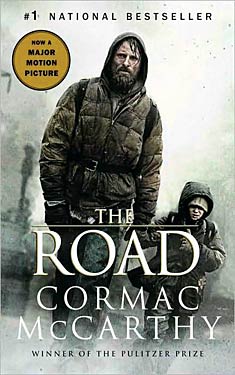 In such worlds where everything is grief and suffering and despair, the question is not would you die for your loved one, but rather would you live for them? In The Road the Boy becomes his father’s sole reason for living, and the tenderness and love with which the father struggles to keep his son alive in so harsh a reality is what drives the film. The most heroic act that Viggo performs in the film is to love his son. The best stories are not about “out there” but rather about “in here,” and that is why I think The Road is the most significant genre film of 2009.
In such worlds where everything is grief and suffering and despair, the question is not would you die for your loved one, but rather would you live for them? In The Road the Boy becomes his father’s sole reason for living, and the tenderness and love with which the father struggles to keep his son alive in so harsh a reality is what drives the film. The most heroic act that Viggo performs in the film is to love his son. The best stories are not about “out there” but rather about “in here,” and that is why I think The Road is the most significant genre film of 2009.
As an aside, and not at all by my own design, I started writing this piece last Sunday, which was the Feast of the Assumption of the Blessed Virgin Mary, the most famous parent in the history of mankind. It so happened that on that day, my wife shared with me a daily reflection written by St. Maximilian Kolbe, a Catholic priest and great devotee of Our Lady who famously gave his life in Auschwitz so as to spare the life of a fellow prisoner. (The prisoner, a husband and father of two, had cried out for his family when he was chosen to be executed, prompting St. Kolbe to successfully petition to take his place in the death chamber.)
In the daily reflection taken from an essay that St. Kolbe had written before the war, he remarked, “… the love of parents towards their children is superior to any other love.” I share this anecdote because the coincidence of his remark being shared with me on Mary’s Feast day when I contemplated the parental love of The Road (and recalled the heartbreaking witness of Night)is too strong not to share it.
In Praise of Pulp
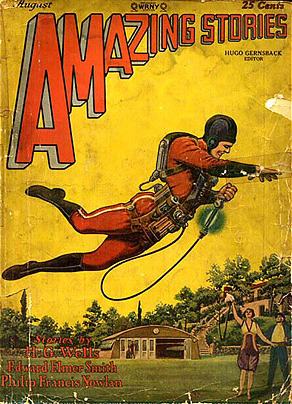 I have a confession to make. I. Love. Pulp. Pulp science fiction, that is.
I have a confession to make. I. Love. Pulp. Pulp science fiction, that is.
Ever since I was a kid I’ve been enamored of Pulp SF. I love the cheesy, and often-times racy, over-the-top Buck Rogers covers: the muscular man of action chasing down the fiendish alien abductor who’s trying to make off with the dame. And what a dame! Scantily-clad buxom lasses all – with incongruous fish bowl helmets that somehow hold back the vacuum of space but never muss their flowing locks. And rockets! Always with the rockets! Rocket shaped space ships poised for takeoff from some exotic alien planet with multiple moons and a few rings thrown in for good measure. That’s how you know its sci-fi, my friends.
But the goodness is not just on the front cover. Turn a pulp over and you get the glory of the blurb. The blurb never fails to amuse and entice with a combination of ridiculous hyperbole and hopelessly anachronistic phrasing. You know you’re reading a pulp blurb when you find yourself doing the Batman TV show voiceover as you read the synopsis. Go ahead; try reading the blurb for The Skylark of Space by E.E. “Doc” Smith below. You almost have to go all Batman on it.
“Scientist Richard Seaton had discovered the secret of the complete release of ultimate energy. And his discovery gave him the key to the exploration of the Universe in all its cosmic immensity. But Seaton’s arch-rival, the powerful, unscrupulous Duquesne, was determined to gain control of this awesome secret too…
The climax came in deep space, when Seaton, Duquesne and three others – two of them women – were marooned, countless light-years from Earth, with only one chance in a million of ever returning…”
Ultimate energy AND cosmic immensity? Two of them women for crying out loud! What’s not to love?
But wait, there’s more!
Pulp books are a feast for the senses! Of course, I’m talkin’ ‘bout proper books here. You know. With pages. Not sterile digital versions on your iSomething™ or Kindle. Great as those devises are, and I love them too so don’t start hating; they just don’t do a pulp justice. I love the dry texture of the brittle binding and chipped corners and the scritch-scratch sound of stiff yellowed pages turning. There is no yellow like the yellow of old pulp pages. You won’t find that in your Crayola box. Then there’s the pleasantly musty smell of old paper and ink. The noble rot. You can smell it now, can’t you? Ah yes. So much for eInk. And the dust. What’s a pulp without years of accumulated bookstore dust? Your Nook won’t make you sneeze like that.
But, of course, all of that is secondary to the real joy of a pulp: the story. Oh, the stories you’ll read.
The best pulps are short and fast reads with minimal exposition and break-neck pacing. Get in and get out. Hang on as best you can. They are rollicking adventures with no pretense to anything other than a good time. You see, there is very little depth to a pulp. No political undercurrent or social commentary. No complex structure or moral ambiguity. It’s all on the shiny space-age polymer surface. They are gloriously and unabashedly formulaic from beginning to end.
In a good pulp you’ll find enough SF tropes to make Margaret Atwood roll her eyes. These stories established the stereotypes after all. The pulp future has it all. Flying cars, ray guns, robots and time machines. Space stations, silver jump suits and artificial gravity. Galactic empires, floating cities and epic battles. Exotic aliens, beautiful women and strapping heroes. And even “talking squids in outer space.”
What about the characters? They are exactly as awesome as they are predictable and cliché.
The good guys are good guys ‘cause how else would they be? They epitomize honor and chivalry and self reliance. You want to be the good guy because he’s a badass. He gets the girl on the cover and always metes out justice to the villains along the way. True men of action like John Carter of Mars:
“I am a citizen of two worlds; Captain John Carter of Virginia, Prince of the House of Tardos Mors, Jeddak of Helium. Take this man to your goddess, as I have said, and tell her, too, that as I have done to Xodar and Thurid, so also can I do to the mightiest of her Dators. With naked hands, with long-sword or with short-sword, I challenge the flower of her fighting-men to combat.”
You don’t pull the mask off the old Lone Ranger and you don’t mess around with John….
The good women embody old time virtues of the fairer sex: beauty, grace and love with a healthy dose of can-do attitude while always remaining more or less helpless and pliant as the plot dictates. You’ll have to forgive them that. It was a different time and besides, a hero needs someone to save.
The bad guys are bad because they can’t compete with the good guys any other way. Many of the best bad guys are aliens. They’ve been poking around in our collective anus for decades – of course they’re the baddies!
“Hideous egotist,” said O-Tar, “prepare to die and assume not to dictate to O-Tar the jeddak. He has passed sentence and all three of you shall feel the jeddak’s naked steel. I have spoken!”
You just know the bad guy is gonna die after a pronouncement like that.
The bad gals are spurned lovers or victims turned cruel. They’re angry and opportunistic and sexy as all get out. They have to tempt the good guys you know. No gray areas in these characters. You’re never supposed to empathize with the bad seeds. That would just slow things down. Your job is to recognize that they’re bad and revel in their comeuppance when it eventually arrives.
Both heroes and villains alike avail themselves of the most outlandish “science” and technology imaginable. This is where the gloves come off. Pulp revels in elaborate scientific explanations that are both silly and wonderful in the extreme. There are pages of this stuff in the Skylark Series:
“The zone of force is necessary to shield certain items of equipment from ether vibrations; as any such vibration inside the controlling fields of force renders observation or control of the higher orders of rays impossible.”
Um, yeah. May the fields of force be with you.
Of course, sometimes the author can’t be bothered with too much jargon and opts to explain it all away as the product of advanced alien intelligence beyond our ken. I’ll buy that. Action is the name of the game in pulp and the second option leaves more room for space battles so we still come out winners in the end. There is no time to waste on physics or relativity. This is all pre-wormhole or subspace stuff here so it’s all about speed! The Kessel Run in four parsecs? A walk in the park. These guys fly to the other side of the galaxy at “titanic speeds”, save the day and make it back in time for a cold one.
Yes, yes, you’re right. There are certainly better books to be reading. Books that read like a steak dinner with a nice Chianti followed by an indie film. They leave you wondering about life the universe and everything. Maybe even touch your life or say something to you. I love those books too.
But every so often, I like to travel “back to the future” – to the beginnings of the genre for a ripping yarn told with earnest joy. Pulp SF books are popcorn and candy, domestic beer and an old B-movie with friends. They leave you breathless and bemused and wanting more. They make you smile and feel nostalgic. They take you away from things serious and mundane for a little while and they don’t demand too much. What more could you ask?
If you’ve never read pulp SF, give it a try. You don’t know what you’re missing. I have spoken.
Some great pulp series to consider:
- Barsoom Series by Edgar Rice Burroughs
- Before the Golden Age edited by Isaac Asimov
- Lucky Starr Series by Isaac Asimov
- Skylark Series by E.E. “Doc” Smith
- Lensman Series by E.E. “Doc” Smith
- The Conan Chronicles, Volume 1: The People of the Black Circle by Robert E. Howard
- The Conan Chronicles, Volume 2: The Hour of the Dragon by Robert E. Howard



















 Full Details
Full Details
